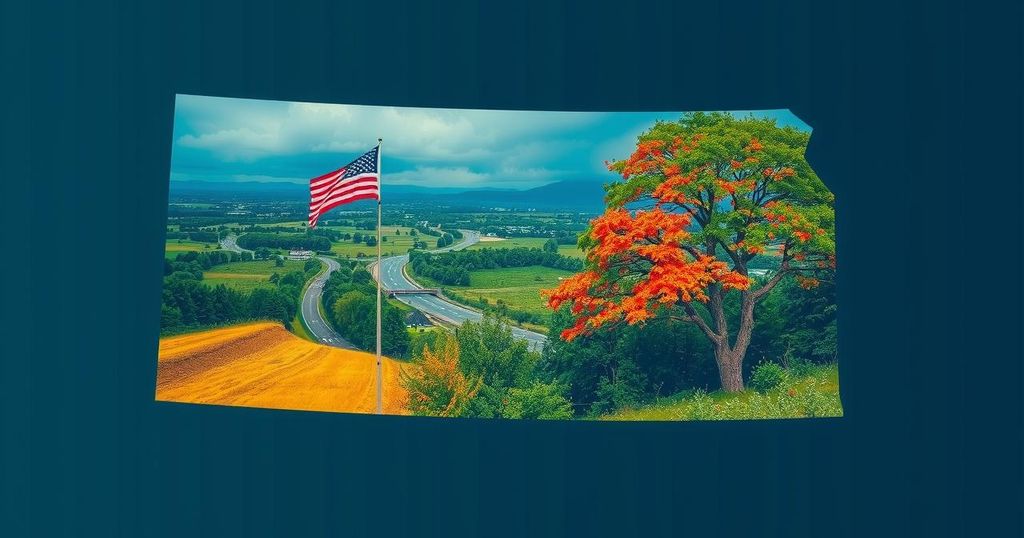As communities in southeast Kansas face dire water shortages, the upcoming presidential election brings climate change issues to the forefront of voter concerns. The election outcomes may dictate future environmental policies and the effectiveness of agencies like NOAA in combating climate challenges. Expert insights emphasize the urgent need for action to address the escalating impact of climate change, highlighted by alarming declines in wildlife populations and extreme weather-related disasters.
The ongoing drought affecting the Little Caney River in southeast Kansas exemplifies the pressing challenges facing local communities dependent on water resources. A sense of urgency permeates discussions regarding the upcoming presidential election, as many Kansans express concerns about the implications of climate change on their livelihoods. Whether alarmed by rhetoric surrounding immigration or concerned for democratic freedoms, voters are increasingly aware of how the election could shape environmental policies crucial for the state’s future. Climate change remains a notable issue, despite being lower on the list of top concerns for voters. Scientific warnings emphasize that without immediate action, communities will face increasingly severe weather events, including droughts, floods, and storm intensification. Doug Kluck, the regional climate services director at the National Oceanic and Atmospheric Administration, underscores the trajectory towards catastrophic conditions, complicating the future for vulnerable populations. The current Republican presidential candidate aligns himself with energy policies that prioritize fossil fuel extraction, potentially undermining critical environmental protections offered by organizations such as NOAA. Amidst a backdrop of the hottest summer on record and consequential climate-related disasters, there is a fear that abandoning these environmental agencies will exacerbate existing issues. Recent studies reveal that climate-related disasters are occurring with increasing frequency and intensity, demanding urgent responses. The World Wildlife Fund highlights that there has been a staggering 73% decline in wildlife populations over the past fifty years, attributed to both habitat loss and climate change. This decline serves as a clear warning that the repercussions of environmental neglect extend beyond immediate observable impacts, threatening ecosystems vital for human survival. The prospect of rising sea levels and other irreversible changes remains a reality that is often dismissed by certain political candidates. On the contrary, the Democratic presidential candidate has demonstrated some commitment toward addressing climate change, including support for pivotal legislation aimed at reducing carbon emissions. Nevertheless, skepticism remains about the adequacy of her plans to confront the rapidly changing climate. The circumstances presented illustrate that the decisions made in the upcoming election will have profound consequences, not only for national policy but also for the future of life on Earth. It is imperative for voters to recognize that their choices extend beyond immediate political concerns, shaping the environmental landscape and the health of future generations.
The article discusses the critical intersection of climate change and the upcoming presidential election in Kansas. It highlights how local environmental issues, particularly water shortages and extreme weather events, are influencing voter sentiment and political ideologies. This narrative combines personal anecdotes with expert testimonies to underscore the potential impact of the election results on both regional and global climate policy. Furthermore, it encompasses the broader conversation surrounding voter priorities, focusing on the urgency of addressing climate change within the political discourse.
In summary, the impending presidential election presents a pivotal moment for Kansas, with environmental concerns, particularly climate change, taking center stage. As communities grapple with the immediate effects of water scarcity and extreme weather, the choices voters make can either exacerbate these challenges or pave the way for meaningful action to safeguard the environment. It is vital for electoral candidates to acknowledge the significance of climate issues and to present robust strategies to mitigate the impacts of ongoing environmental crises, ensuring a sustainable future for the next generations.
Original Source: kansasreflector.com






